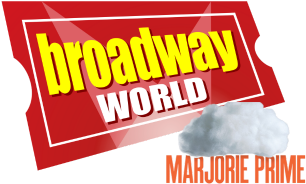NCPA's Citi-NCPA Aadi Anant to Travel Across Mumbai, Delhi and Pune, Beg. Dec 7
Citi-NCPA Aadi Anant Festival of Indian Music begins in Mumbai on December 7 & 8, 2013 at the NCPA, then travels to Delhi on January 12 and Pune on January 18, 2014 featuring stalwarts like Zakir Hussain who will be seen collaborating with world-renowned jazz musicians: veteran saxophonist and composer George Brooks, Afro-German bassist Kai Eckart, Egyptian pianist Osam Ezzeldin and Cuban drummer Dafnis Prieto, Hariprasad Chaurasia along with Bhawani Shankar and Vijay Ghate, Rashid Khan, Ranjit Barot, Sabir Khan, Panamanna Sasi, Kalamandalam Venugopal, Kalamandalam Arundas, Kalamandalam Muraleedharan andPalakkad Manian. This impressive line-up of artists is sure to be an aural treat for all music lovers.
December 7 & 8, 2013Tata Theatre, NCPA, Mumbai
Zakir Hussain (tabla)
George Brooks (saxophone)
Osam Ezzeldin (piano)
Kai Eckhardt (bass) and
Dafnis Prieto (drums) Saturday, Dec 7, 6.30 pm The past few decades have seen the emergence of several musicians who have felt the need to relate the inherited idioms with contemporary reality to extend the frontiers of their respective traditions in various ways by exploring new content or by collaborating with practitioners of other disciplines. In this regard, the contribution made by Zakir Hussain, the internationally renowned tabla maestro, is indeed unique. His trend-setting work with artistes from diverse traditions, ranging from Indian classical music to jazz and world music genres, has lent new direction and aesthetics to the art of percussion music, going beyond the conventional vocabulary and expression. In this performance, the inimitable master collaborates with world-renowned jazz musicians: veteran saxophonist and composer George Brooks, Afro-German bassist Kai Eckart, Egyptian pianist Osam Ezzeldin and Cuban drummer Dafnis Prieto.
Exploring the theme of 'Boundaries and Beyond', the artistes will attempt a musical dialogue across disciplines. The exploration of new soundscapes will lead to a fiesta of unheard melodies and pulsating rhythms, which is sure to take listeners into a world of masterful innovation.
Box office opens: Nov 9 & 12
1500, 1000, 500
No member rate for this event
Hariprasad Chaurasia (bansuri)
Supported by
Bhawani Shankar (pakhavaj) and
Vijay Ghate (tabla) Sunday, Dec 8, 6.30 pm India is one of the most musical and musically diverse countries in the world. Each region has its own distinctly rich legacy of music traditions.
Indian art (classical) music is based on raga-s, which have evolved from the folk melodies of different provinces. Although melodically similar, the two forms have independent character, as realised through the idiom of classical and folk music respectively.
Among the myriad musical instruments practiced in India, bamboo flute or the bansuri has a ubiquitous presence in all types of music including its well-known mythological connection with Lord Krishna, the cowherd of Brindavan.
900, 600, 300 (members)
January 12, 2014, 6.30 pm
FICCI Auditorium, Delhi
Rashid Khan (vocal)
Supported by
The Indian vocal music tradition is replete with genres and forms ranging from khayal and tarana (classical music) to thumri, dadra (semi-classical music), and geet, ghazal (light /popular music). These song-forms are available in myriad Indian dialects and each of them has a unique identity characterized by its idiom and aesthetics.
Rashid Khan is the torchbearer of Rampur-Sahaswan gharana. With his robust yet sonorous voice, uncanny technical control oversargam and taankari, effortless rendition of varied forms from khayal, tarana and thumri to geet, Rashid Khan is one of the most sought-after vocalists today.
Rashid Khan will present an array of forms from classical, semi-classical and light-music genres.
800, 600, 400
January 18, 2014, 6.30 pm
Susie Sorabji Auditorium, Pune
Zakir Hussain (tabla) with
Ranjit Barot (drums)
Sabir Khan (sarangi)
Panamanna Sasi (chenda)
Kalamandalam Venugopal (maddalam)
Kalamandalam Arundas (edakka)
Kalamandalam Muraleedharan (elathalam) &
Palakkad Manian (elathalam)
Since ancient times, the Indian subcontinent abounds in a variety of percussion instruments, used in making music for entertainment or as a part of religious rituals. These include instruments like drums, which are covered with membrane or those with solid bodies like bells and cymbals. Their performance techniques, idioms and aesthetics are as varied as the size, shape, material and intended function of each of the instruments.
The performance will bring together percussions from three different music traditions: Indian classical music, Western music and ritual music from the temple tradition of Kerala. The world-renowned percussionist Zakir Hussain, master drummer Ranjit Barot and an accomplished Thayambaka ensemble with various drums and bells will mark a rare constellation of percussion instruments. The ensuing explorations will transport the audiences into the world dominated by rhythms, and illuminate the unity underlying the diversity of musical traditions.
Videos
